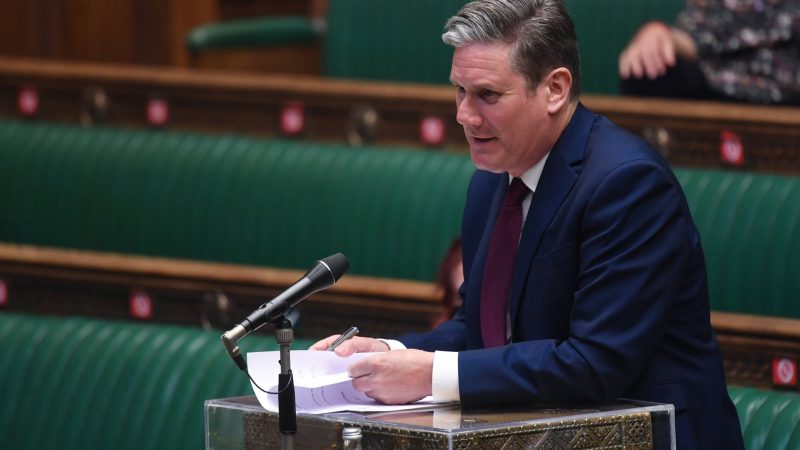
Keir Starmer stuck close to his talking points on growth in this week’s Prime Minister’s Questions. The Labour leader began by hitting Sunak with the claim that, should current trends continue, the average family in Britain will be poorer than the average family in Poland by 2030. “If the Tories limp on in government, we’re going to see a generation of young people learning to say “Auf Wiedersehen, Pet” in Polish,” Starmer said, in a somewhat convoluted and outdated reference to the 1980s television programme about British construction workers seeking employment in Germany. Starmer moved on to discuss soaring energy costs, accusing Sunak of being unwilling to take on “vested interests” – another line that featured in his speech on economic growth earlier this week. Singling out Shell’s low tax payments as an example of the “oil and gas giants celebrating record profits” that Sunak needs to tackle, Starmer asked when the Prime Minister was going to start choosing “family finances over oil profits”. Sunak countered that the vested interest Starmer needed to take on is that of the trade unions, calling on the opposition leader to back the government’s minimum service levels bill.
Starmer’s next port of call was house building, saying that Sunak had been “forced” by his backbenchers to scrap house building targets. Starmer accused the Prime Minister of being responsible for a dramatic drop-off in house building, saying: “He can bring back targets and planning reforms, or he can duck that fight and let a generation down.” The Labour leader’s third attack line focused on childcare costs. “It’s not just bills or housing – families are paying over £1,000 a month to send their child to nursery,” Starmer said, before calling on Sunak to scrap the non-dom tax status in order to fund childcare provision. The Labour leader asked: “What’s he going to choose – wealthy tax avoiders or hard-working parents?” Sunak responded by accusing Starmer of having “already spent the money from that policy five different times”. Labour has previously pledged to use at least some of the funds raised from scrapping the tax status to fund its plan to expand the NHS workforce.
Starmer concluded the session by raising the Telegraph story on Matt Hancock’s pandemic WhatsApps, commenting that, while the story was still emerging, it provided an “insulting and ghoulish spectacle” for families around the country. He asked Sunak to commit to the Covid inquiry being able to issue its report by the end of this year, which Sunak did not do, saying instead: “There is a proper process to these things. It is an independent inquiry.”
It is hard to imagine Starmer being unhappy with how the afternoon’s questions went. He hit Sunak on energy prices, house building and nursery costs, keeping the focus to growth tight and emphasising that it is the Tory economic record and what he termed Liz Truss’ “kamikaze budget” that have resulted in the UK being “the only country in the G7 still poorer than it was before the pandemic”. Still, if Starmer gets full marks for message discipline, he scores less highly for his workmanlike delivery. This week’s session was often rowdy – with Speaker Lindsay Hoyle intervening at one juncture to calm proceedings down – but somewhat insubstantial, with Starmer lacking the gravity he has when at his best in the chamber.



More from LabourList
Humza Yousaf woes deepen as Labour files no-confidence vote in government
‘History and poll leads suggest Labour can be bolder, even if it costs some votes’
Labour warned ‘ethical foreign policy’ inevitably sparks charge of ‘hypocrisy’